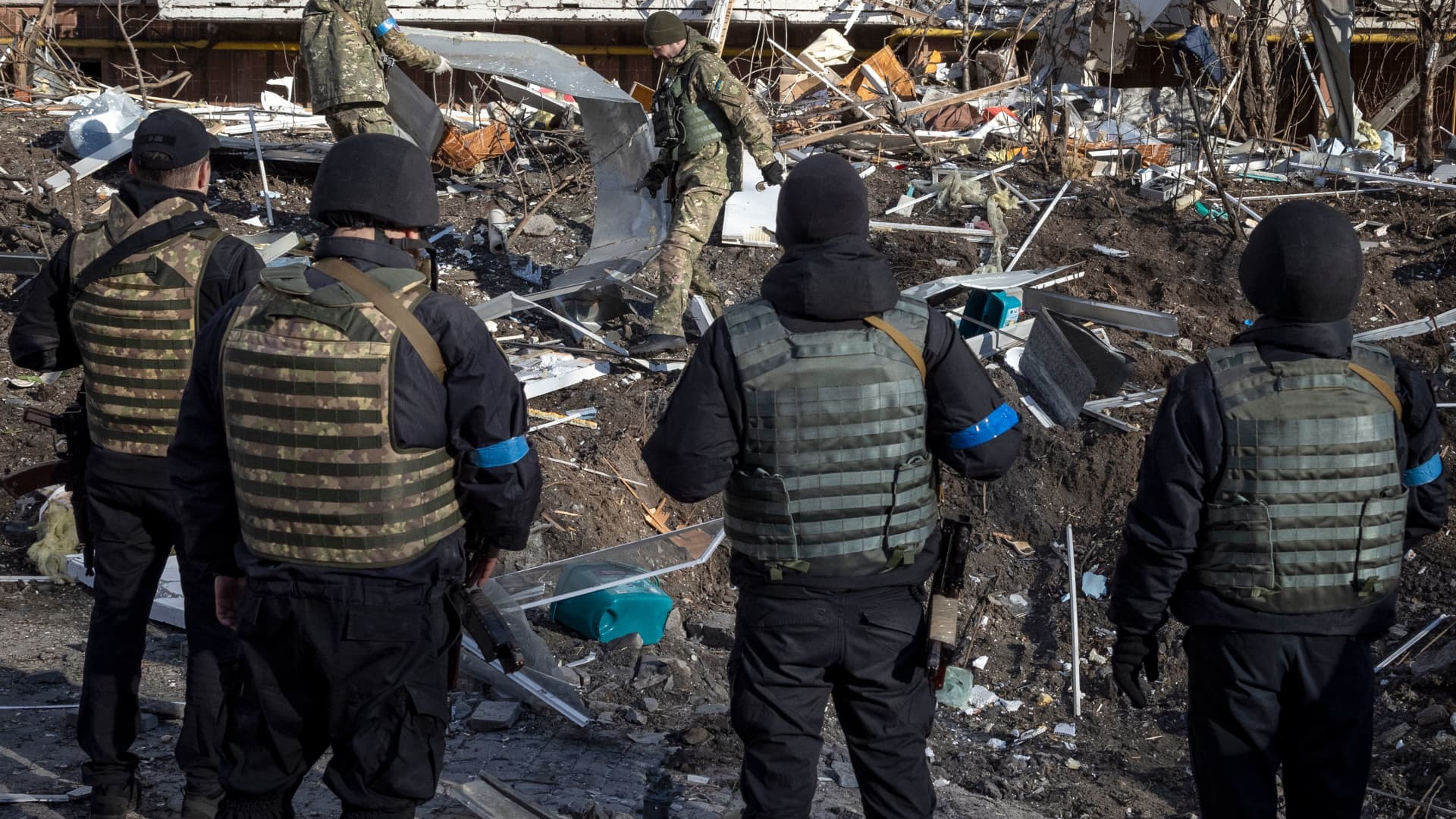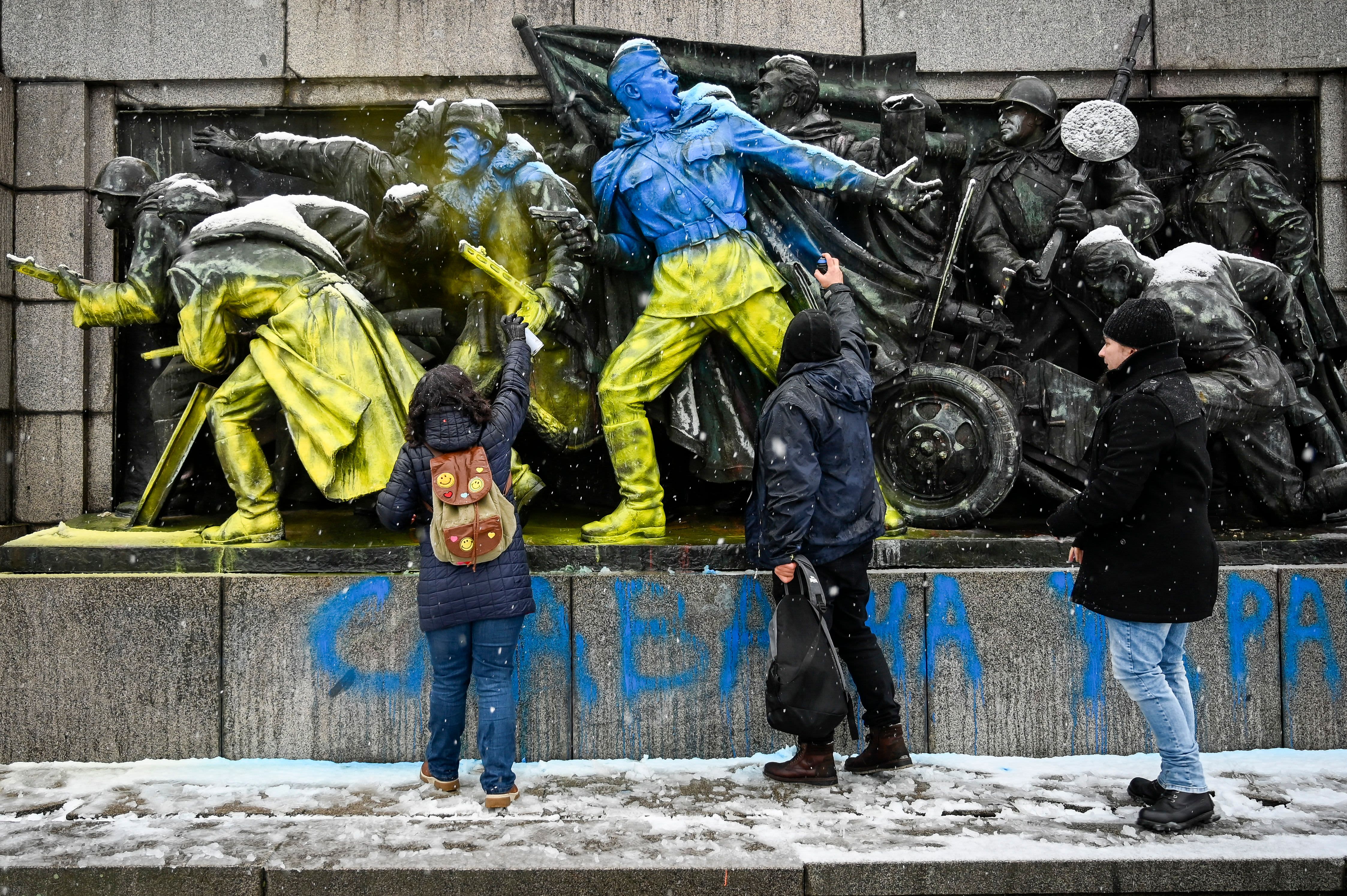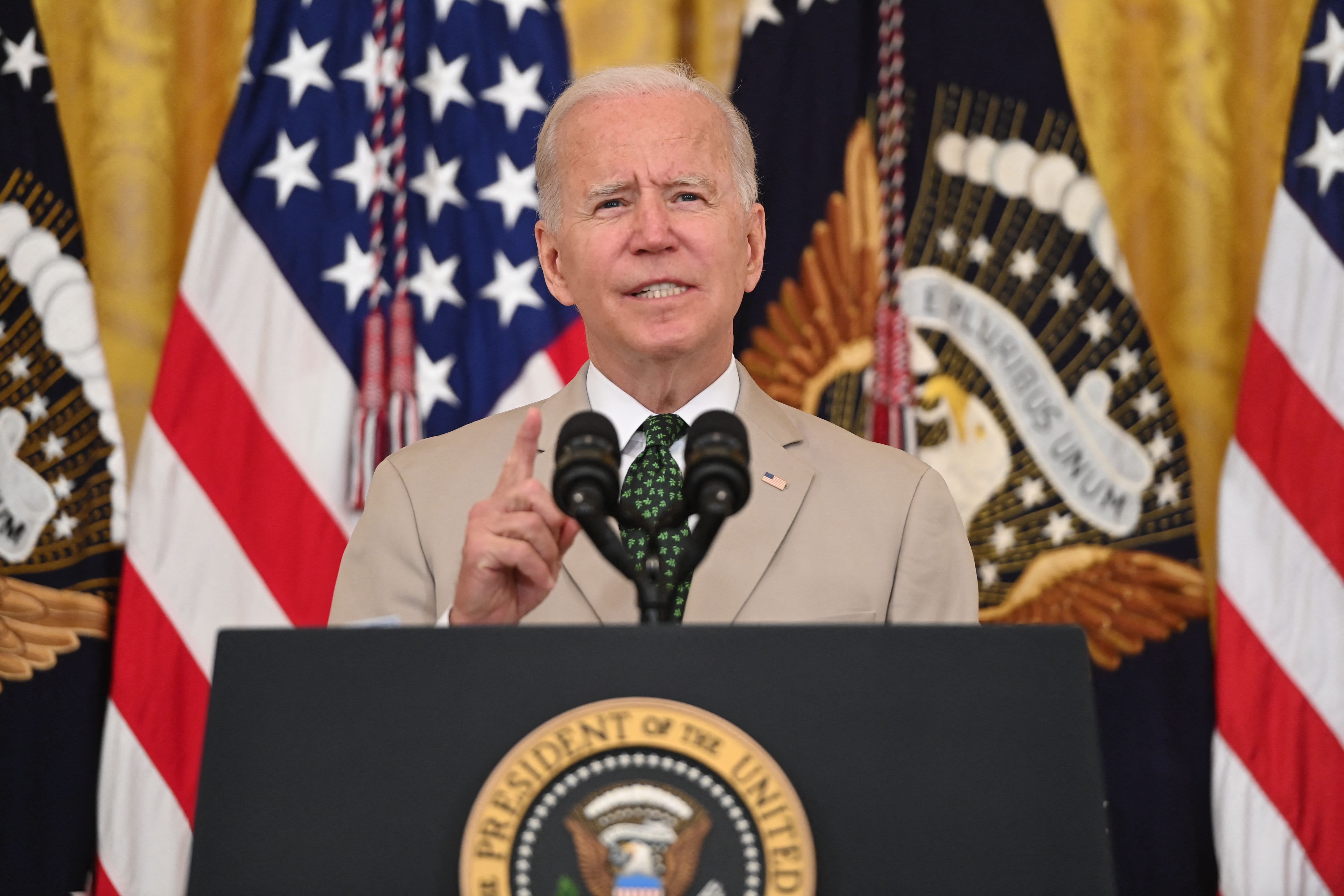Putin's Russia looks increasingly desperate as Ukraine war nears stalemate, analysts say
Putin's forces have exerted brutal force and destruction on much of Ukraine, but Russia has achieved few military victories.

Ukraine soldiers inspect the rubble of a destroyed apartment building in Kyiv on March 15, 2022, after strikes on residential areas killed at least two people, Ukraine emergency services said.
Fadel Senna | Afp | Getty Images
With Russia's invasion of Ukraine now approaching its fourth week, President Vladimir Putin's forces have exerted brutal force and destruction on the Eastern European nation, forcing people to flee and making millions homeless.
Russia's economy is now creaking under the immense weight of international sanctions and the costs of war, having largely failed to achieve major military victories in Ukraine. Close watchers of Moscow, and Putin, say there are increasing signs of desperation in Russia's military campaign and siege tactics.
"I don't think Russia can win," Kurt Volker, a former U.S. ambassador to NATO, told CNBC.
"They're bogged down. They're having trouble with supplies. They are having trouble with ammunition. They are not able to take the major cities. They're not advancing. They are showing a lot of desperate measures like calling in Syrians or asking the Chinese for help, or threatening to attack the NATO countries' [weapons] supplies [to Ukraine] and raising the specter of biological or chemical or nuclear use," he noted.
"These are all signs of, I think, desperation," Volker told CNBC on Friday, adding that they are getting squeezed between military failure on the ground, and the failure of Russia's economy due to the sanctions. "And so time is working against them now," he said.
Volker said that Russia's desperation for a quick win in Ukraine means that it is now resorting to what he described as "barbarian tactics" including "targeting civilians directly, shelling cities" to try to create "fear and exhaustion in the population."
Stalemate setting in
Russia has failed to take the capital Kyiv and to unseat President Volodymyr Zelenskyy's government, with a massive military convoy that snaked toward the city over recent weeks still dispersed on the outskirts, while Ukraine's forces have managed to resist Russian attempts to seize the country's second-largest city Kharkiv in the northeast, quite a feat given its proximity to the Russian border.
The western city of Lviv, meanwhile, has seen its airport targeted by Russian shelling, as well as a nearby military facility, but so far the city — which has become a major conduit for Ukrainians fleeing to eastern Europe — has been relatively unscathed.
In fact, several weeks into its invasion and just one city, Kherson, has fallen to Russian forces.
Faced with this scale and spirit of resistance, there's hope among analysts that Ukraine's forces can continue to withhold, stall and even potentially stop Russia's forces advancing.
"I've been in touch with people and Kharkiv and Lviv and Kyiv and they are motivated, they are really determined, and they are confident because they see that Russia is not making gains," Volker said.
Other analysts fear the war has now entered a period of potentially long, drawn-out fighting with little gained by Russian forces, and little conceded by Ukraine's.
"The war is pretty much at a stalemate," Michal Baranowski, director of the German Marshall Fund's Warsaw office, told CNBC Monday.
"Russia was hoping for a quick victory, basically a Blitzkrieg, a quick run to Kyiv with a hope to frankly decapitate the Ukrainian government in the first few days. They failed to do it and so the tactic and strategy has changed into a really grueling, grinding war."
He said Russia was now relying significantly more on air power and was hitting more civilian targets, such as a theater in the besieged southern port city of Mariupol, where civilians were sheltering. Huge signs were painted outside the theater, on the ground, warning that children were in the building and still it was hit. The Kremlin has repeatedly denied that it targets civilians, despite the evidence to the contrary.
"Russia is unfortunately bombing, probably on purpose, these civilian places in order to break the will of the Ukrainian people," Baranowski said.
Fighting for our homeland
If one city has become an emblem or symbol of the strength of Ukraine's resistance and resilience in the face of Russia's invasion it is Mariupol.
The city has suffered intense shelling for weeks as well as acute food, water and food shortages that have left hundreds of thousands of people in dire conditions and desperate to escape. While many managed to evacuate the heavily-destroyed city last week, intense fighting has continued with street battles taking place at the weekend. Meanwhile, thousands of civilians are still trapped in the city.
Despite its bombardment and suffering, Mariupol has refused Russia's demands — and a deadline set for 5 a.m. on Monday — to surrender.
It's uncertain what Russia, which had said it would allow more civilians to leave if Ukraine had agreed to surrender, will do now its ultimatum to lay down arms has been rejected.
"Mariupol is almost destroyed, it's Aleppo now in the middle of Europe. It's Stalingrad, giving a 20th century analogy, but those are the tactics of terror," Ukrainian lawmaker Oleksiy Goncharenko told CNBC Monday.
He said Putin and his forces appear to be resorting to siege tactics to undermine and weaken Ukrainian cities and civilians because of the strength, scale and spirit of Ukraine's resistance.
"He just can't go further because our army is holding the ground. They [the Russian army] has been around 25 kilometers away from Kyiv for about two and a half weeks now, so they just couldn't go further and it's the same situation in other regions of Ukraine."
Moreover, he said, counter-offensives had started in parts of the country including Kyiv and in the south, which is a focus for Russian forces trying to join up the Crimean Peninsula, which they annexed in 2014, with the pro-Russian separatist regions in the east of the country, creating a land bridge to Crimea.
Ukraine's resistance had prompted Russia to change tactics and to use more "terror" and scare tactics like mass, more indiscriminate shelling, Goncharenko said.
He said Ukrainians have the will to stop Putin but they need more assistance from the West.
"It's our land, it's our country, we don't have any other option. Putin underestimated us and I think that the whole world underestimated us. I saw the news at the beginning [of the war] with U.S. intelligence giving us 96 hours and after this Kyiv will fall but I can assure you, Kyiv will not fail and we will not surrender," he said.
He noted that more than 100,000 people had joined Ukraine's territorial defense force, a civilian militia, including himself, but he echoed Zelenskyy's call for more sanctions, more weapons and more air power to help defeat Russia.
"Thousands of Ukrainians are taking up arms, we will stop Putin — but what will be the price for us and for the whole world," he said.
In response to a request for comment, the Russian Ministry of Defense directed CNBC to a statement from more than two weeks ago which said in part that Russian forces carry out strikes only on military targets "using high-precision weapons."
However, overwhelming photographic and video evidence, as well as official assessments from the U.S., U.K. and others, show that Russia is in fact striking civilian targets with unguided weapons.

 ValVades
ValVades 
































